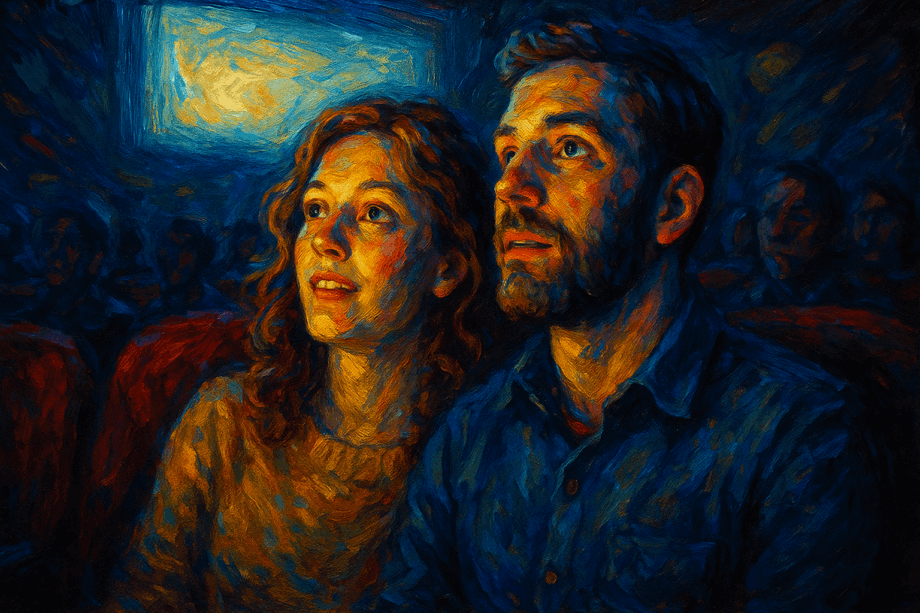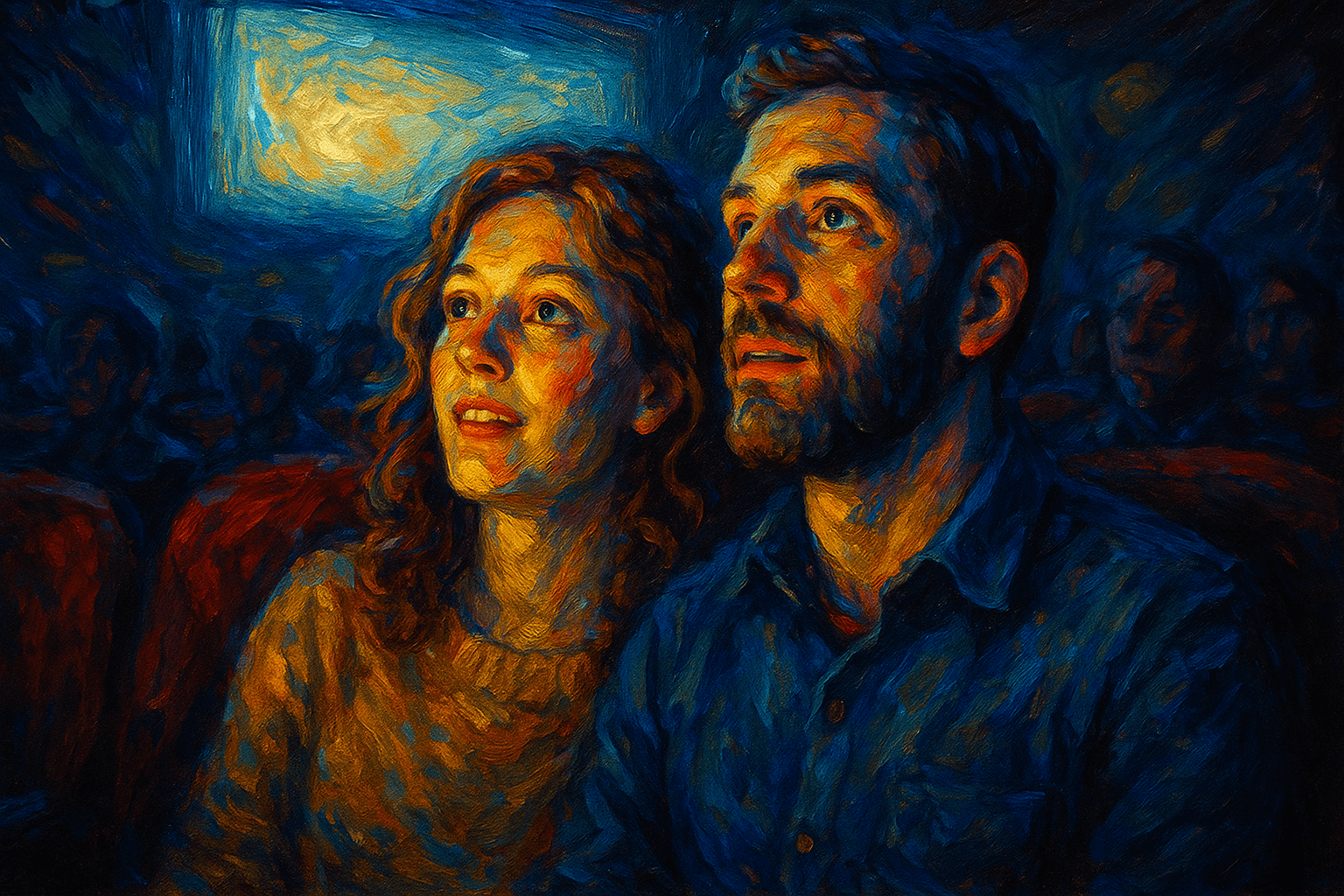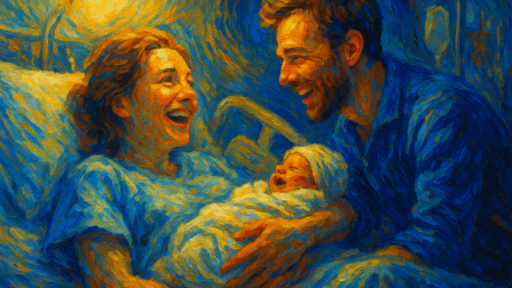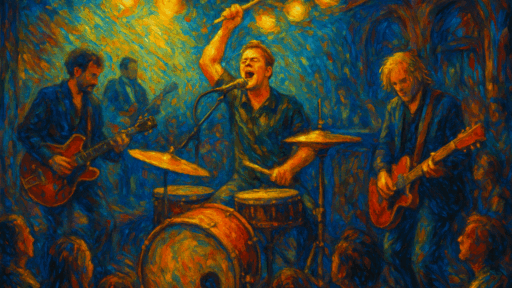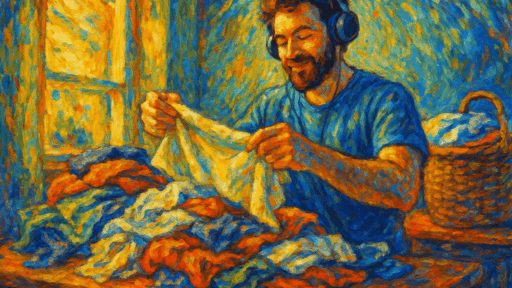“Movies are life with the boring parts cut out.”
Alfred Hitchcock
Movies are a strange kind of magic.
They’re two hours in the dark with strangers, where flickering light on a wall can somehow feel like the truest thing you’ve ever known.
They don’t just entertain. They sneak into your memory, tie themselves to seasons of your life, and become shorthand for emotions you can’t quite name. Some of mine are tangled up with childhood weekends on the couch. Others remind me of late-night theater runs, popcorn dinners, or that one VHS tape I wore down to static.
Now… trying to make a definitive list of my favorite movies would be like trying to pick a favorite star in the sky: impossible, exhausting, and guaranteed to start arguments.
But I am nothing if not a fool for lists.
So here are a mere twenty. My top shelf, my first ballot Hall of Fame. Ask me tomorrow and the list might change, but these will always be in the conversation.
About Time (2013)
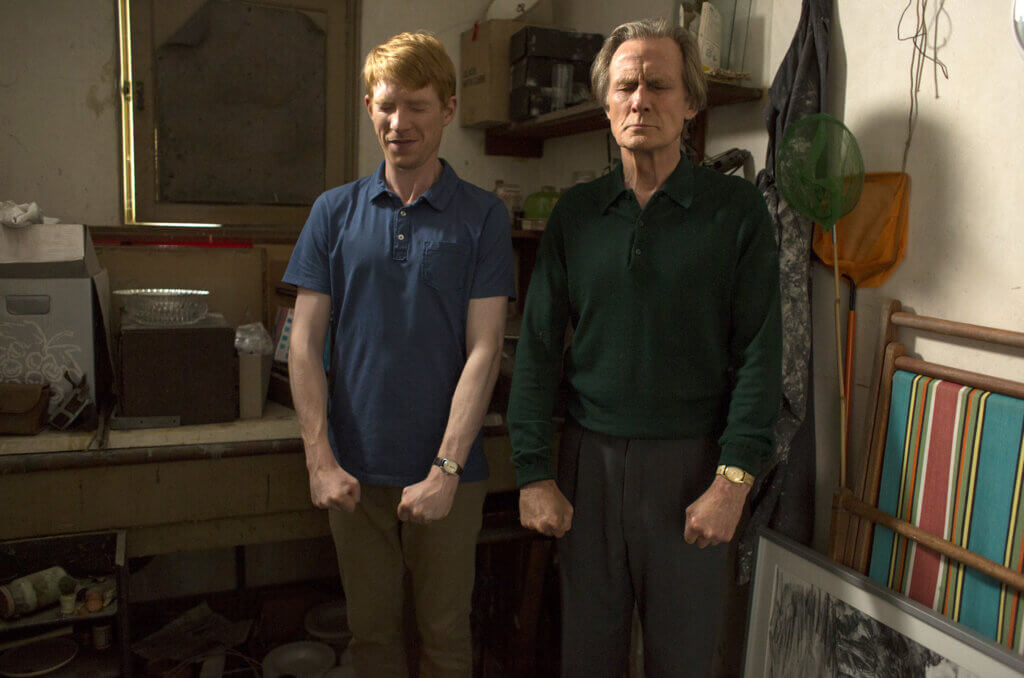
I went into this one blind. I hadn’t seen a trailer, barely knew the premise—just sat down in a dark theater and let it happen. And what happened was one of the most beautiful movie experiences of my life.
It’s a movie about time travel, but not really. It’s a movie about love, but not in the way you expect. It’s a movie about family, but without the easy sentimentality most family movies lean on.
Somehow, it’s all of those things at once.
It left me with that rare feeling you carry long after the credits: that the days we rush through, the small choices, the everyday moments with people we love—that’s where the real magic is hiding.
I remember walking out of the theater in a daze, completely undone. Not because it was sad, but because it was beautiful. Because it pressed into me—in a way I didn’t know I needed—that ordinary days with the people you love are anything but ordinary.
Good Will Hunting (1997)
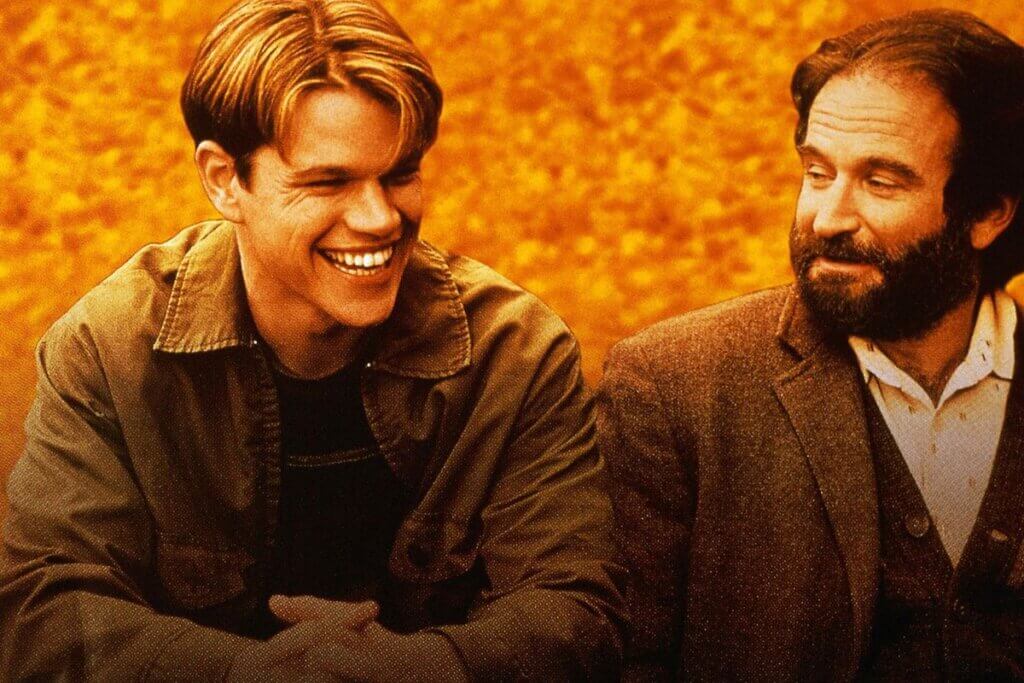
When I first saw Good Will Hunting, I was a teenager. And honestly, I just didn’t get it. Smart kid from Boston, some therapy sessions, a little math on the chalkboard. Good, sure. But it didn’t really stay with me. At least… not yet.
Then I saw it again as an adult.
The story hit deeper. The writing felt sharper. The performances carried a weight I hadn’t noticed before. What once felt like a clever movie about a troubled genius revealed itself as something far more profound—a story about pain, healing, and the way one voice can break through when you need it most.
It’s funny. The movie hadn’t changed, but I had.
The lines were the same, the scenes unchanged—but they meant something different now.
That’s the strange gift of revisiting old favorites. They act like mirrors, showing us who we were when we first watched—and who we’ve become since.
Groundhog Day (1993)
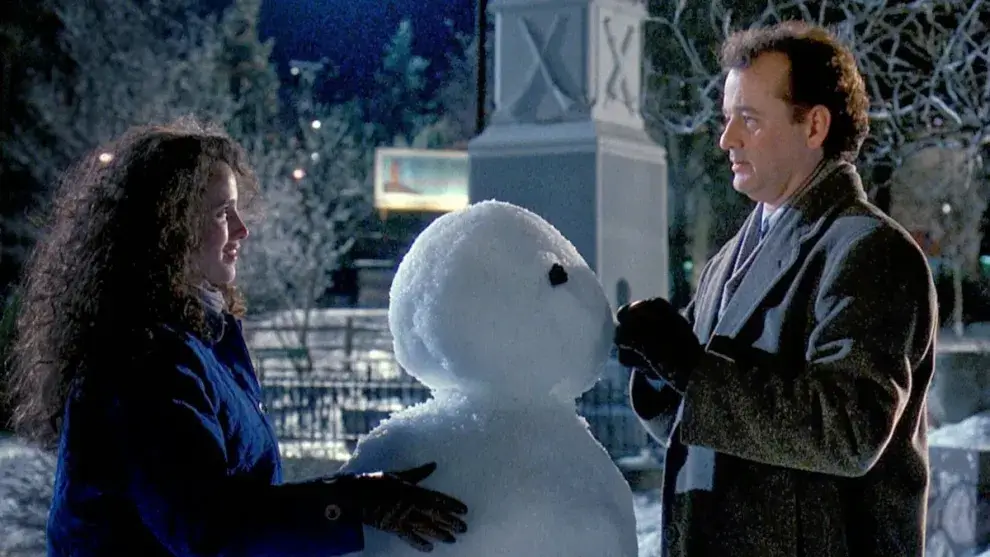
At first glance, it’s just a clever comedy: Bill Murray stuck in the same day, over and over, with all the hijinks that come with it. But Groundhog Day is so much more than that. It’s a rom-com, a satire, a philosophical thought experiment—and somehow it manages to be all of those things without losing an ounce of charm.
What I love is how it layers silliness with sincerity. The pranks, the slapstick, the endless breakfasts—all funny, all perfectly Murray. But beneath it runs a current of something deeper: the ache to change, to grow, to become someone better.
It’s rare for a movie to make you laugh and still leave you with something to carry. Groundhog Day does both.
It’s good to remember that life isn’t about perfection. It’s about showing up…again and again: learning, failing, trying, loving.
Inception (2010)
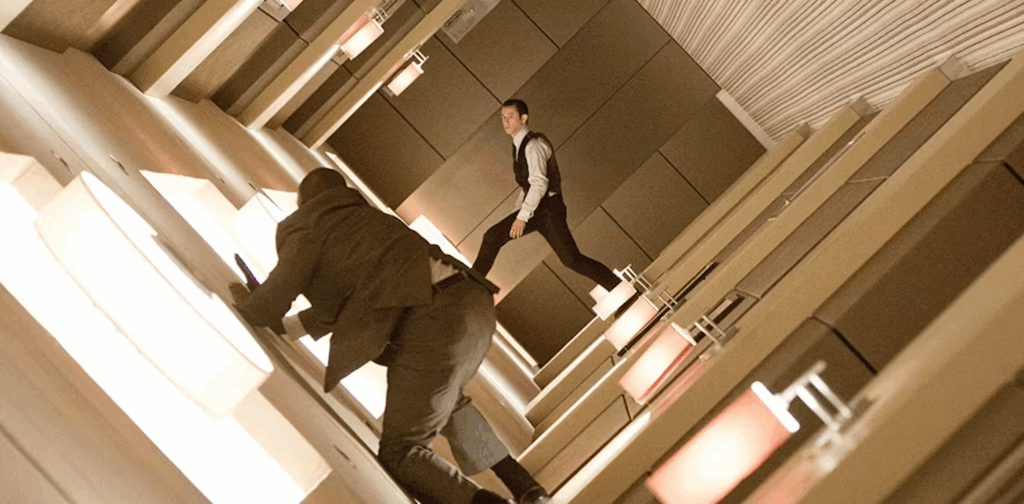
Some movies are so big, so ambitious, you half expect them to collapse under their own weight. Inception doesn’t. In fact, it soars.
The concept alone is staggering: dreams within dreams, a heist pulled off in the subconscious, and a final shot people are still debating.
But the brilliance is how human it stays. Nolan grounds the spectacle in characters you care about, so the most brain-bending action is also the most emotional.
Even in the middle of gravity-defying hallways and collapsing dreamscapes, the movie never loses sight of its beating heart—a father trying to find his way back home.
And then… there’s the score.
Good grief. Hans Zimmer doesn’t just underscore the film, he detonates it. Those sounds—half music, half earthquake—make the entire experience unforgettable.
Watching it now feels just like that first time: dazzled, overwhelmed, grinning through the confusion. It’s a film that makes you think and feel, then dares you to rewatch—knowing it’ll sweep you away again.
Indiana Jones and the Last Crusade (1989)
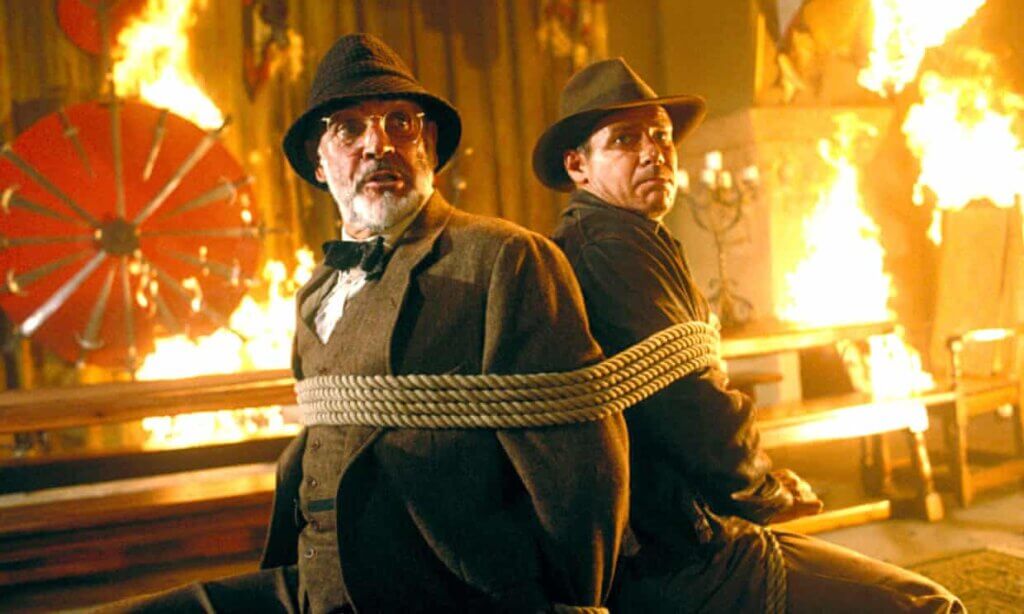
I’ve always loved the idea of Indiana Jones—that mix of adventure, mystery, and old-school spectacle. But for me, The Last Crusade is the crown jewel of the series.
It’s got everything you want: the whip cracks, the treasure hunts, the booby traps, the inevitable snakes, the narrow escapes. But layered on top of the adventure is something deeper: the relationship between Indy and his father.
Sean Connery and Harrison Ford together are a revelation—equal parts comedy, conflict, and tenderness. They give the movie a weight the others never reach.
So when Indy is hanging over the abyss, reaching for the Grail, and his father whispers, “let it go,” it hits harder than any narrow escape. Because in that moment, it’s not about gold or glory.
It’s about love, trust, and finally seeing each other clearly.
It’s a Wonderful Life (1946)
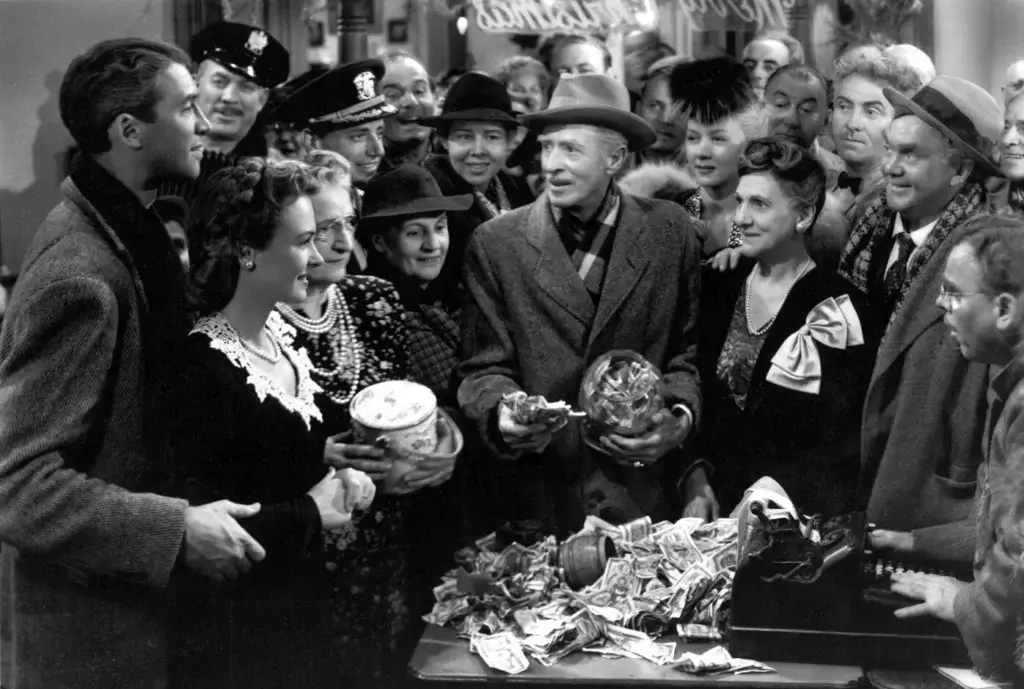
Some movies you grow up with, and some movies grow up with you. For me, It’s a Wonderful Life has always been both.
Every Christmas, my family would gather around and watch George Bailey give up his dreams, one sacrifice at a time, until the world felt too heavy for him to bear. And every year, the movie hit me in a new way.
It’s easy to think of it as a Christmas movie, but really, it’s bigger than that.
It’s a story about sacrifice, about choosing others over yourself, and about how much one life—your life—can ripple out and matter in ways you may never see.
By the time the town gathers around George Bailey, I’m a mess. Every time.
Because for all its black-and-white simplicity, It’s a Wonderful Life tells the most colorful truth: the measure of a life is the love you give away.
Love Actually (2003)
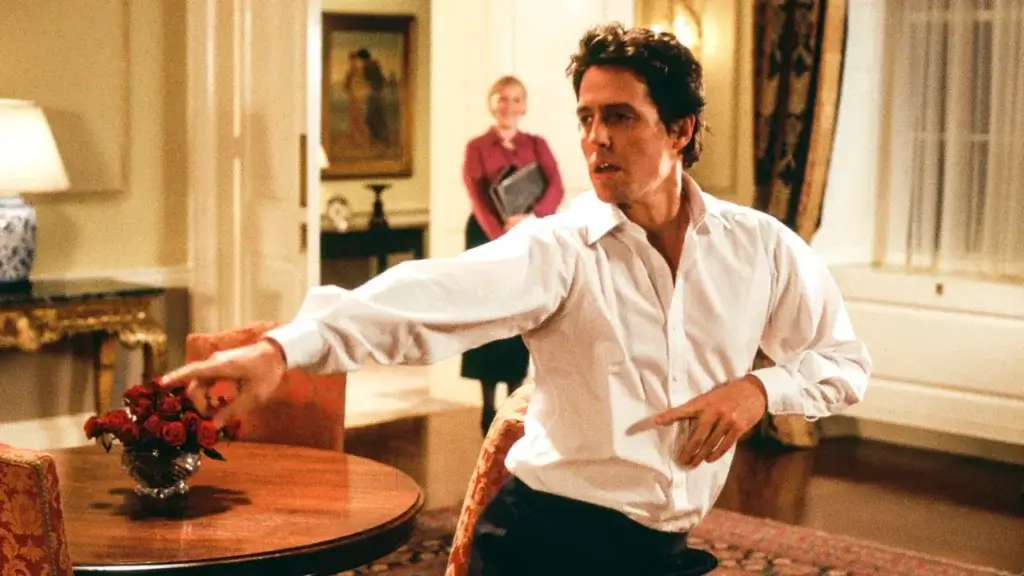
I know. Some of you hate this movie.
For whatever reason, Love Actually has become the “All I Want for Christmas Is You” of holiday films—the one that gets played to death, defended with passion, and dismissed with equal force. Which is fitting… since the movie actually features that same song.
But for me, it’s untouchable.
If It’s a Wonderful Life was the tradition of my youth, Love Actually is the Christmas tradition my wife and I never miss as adults. It’s a treasure.
Every year…
Alan Rickman tests my patience. Laura Linney picking up the phone breaks my heart. Hugh Grant dancing through Downing Street delights me to no end. Bill Nighy is a joy in every frame. “Just in cases” makes my heart sing.
And Liam Neeson’s stepson running into his arms at the airport… oh man. That one leaves me in tears. Every single time.
Even the opening and closing credits get me—perhaps especially those scenes.
The camera lingering on ordinary people hugging and reuniting, Hugh Grant’s voiceover, the Beach Boys quietly carrying it all along.
It’s magic. Pure and simple.
Which is why, in our house, it’s not really Christmas until Love Actually rolls.
Moulin Rouge! (2001)
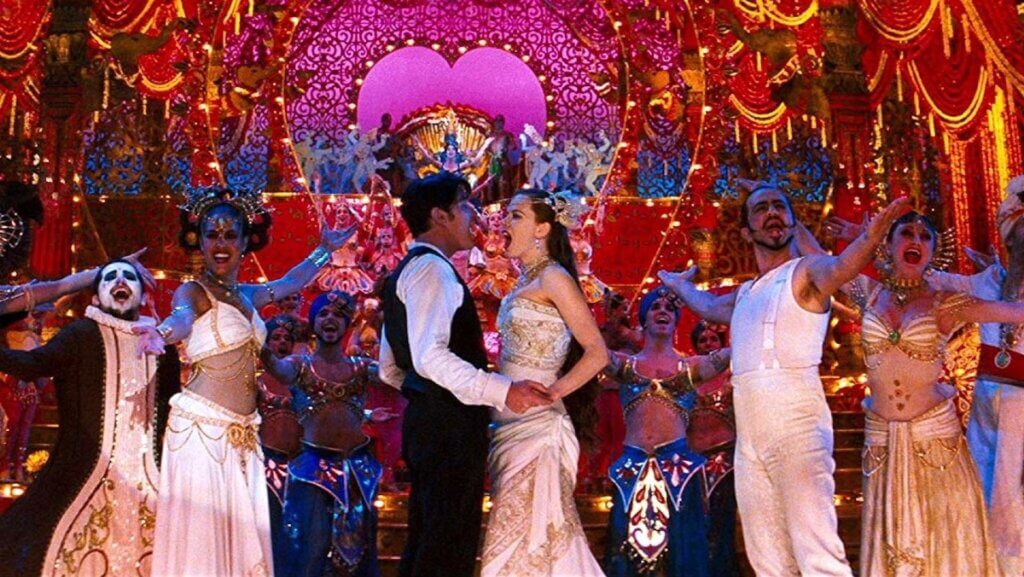
I didn’t even want to see this movie.
It just didn’t seem like something I’d enjoy… at least at the time. Too flashy, too loud, too much. And in a way, I was right. It is all those things.
But it’s also one of the most breathtaking movies I’ve ever seen.
I remember feeling like the movie was daring me to keep up—throwing color and music at me faster than I could process—until suddenly, it wasn’t about the spectacle at all. It was about two people on a rooftop, singing borrowed love songs that somehow felt brand new.
Moulin Rouge! caught me off guard in the best way.
I went in expecting a carnival ride and walked out gutted, clutching onto a story that said love is worth it, even when it breaks you.
Notting Hill (1999)
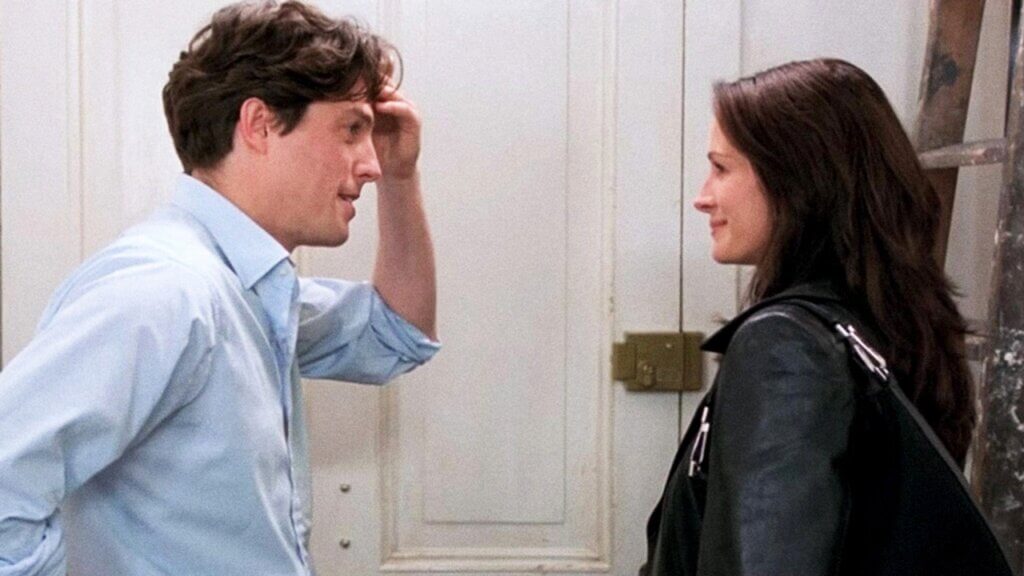
Some romantic comedies make me smile. But Notting Hill makes me believe.
On paper, it’s almost too simple: a bookshop owner meets the most famous actress in the world, and somehow, improbably, they fall in love. But the movie knows exactly what it’s doing. Hugh Grant’s bumbling charm. Julia Roberts at her most magnetic. A script that finds just the right balance of humor and sincerity.
The dinner party scene. The press conference. Spike in his goggles. It’s a movie stitched together from little moments that somehow add up to something big.
And then, of course, the (in)famous line:
“…I’m also just a girl, standing in front of a boy, asking him to love her.”
By the time that lands, you’re either rolling your eyes—or you’re rooting for them.
As for me? I’m all in. Every. Single. Time.
Once (2007)
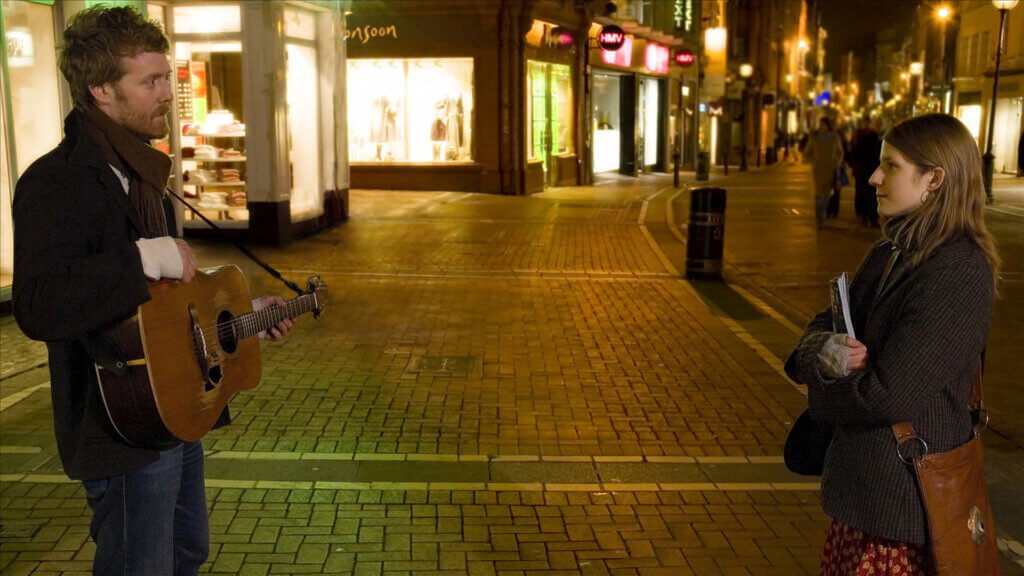
I walked into Once with zero expectations. No hype, no trailers—just a little indie film I happened to stumble into.
And then… it completely wrecked me in the best possible way.
It’s not a traditional love story, and that’s part of its power. Two people meet, make music together, and for a fleeting stretch of time, something extraordinary exists between them.
It’s fragile and raw and painfully real.
The moment that lives in my bones is when they sit down in the music shop and play “Falling Slowly” together. You can feel it—the room shifting, the air changing, the sense that everyone watching knows they’re witnessing something rare.
I remember glancing around the theater as if to confirm: “…you feel this too, right?“
Once won me over with honesty—with the kind that sneaks up on you in a song, in a glance, in a room so small it barely fits two people but somehow holds the whole world.
Pride & Prejudice (2005)
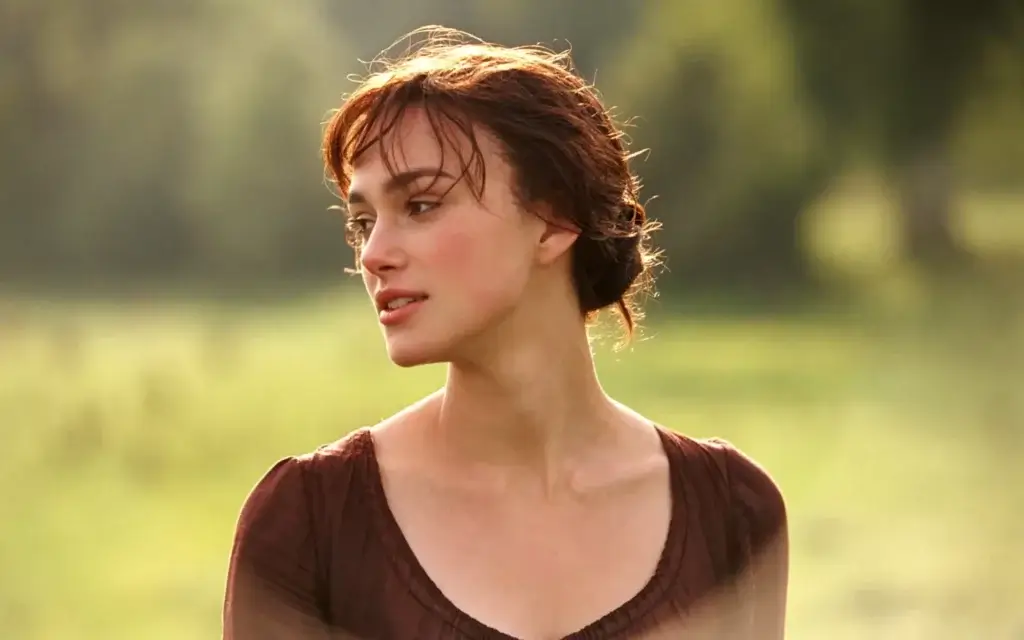
When Shelley and I went to see Pride & Prejudice, I expected to admire it from a distance. It’s her favorite book—every twist, every glance already part of her DNA. I came in as an outsider. But somewhere between the candlelight, the piano keys, and Darcy’s aching silences, I stopped watching from the outside. The story pulled me in, and I didn’t want to leave.
What surprised me wasn’t the romance—it was how the movie made the quiet feel electric. A hand brushing another. A silence stretched too long. A look that said everything. It swept me up in a way I didn’t see coming.
And sitting there next to Shelley, I realized that was part of the magic: watching her favorite story become one of mine.
By the time Darcy was striding across that misty field, finding the words he could never quite say, I wasn’t just rooting for them—I was gone. Proof that sometimes the most powerful love stories aren’t the ones you discover alone, but the ones someone you love shares with you.
Saving Private Ryan (1998)
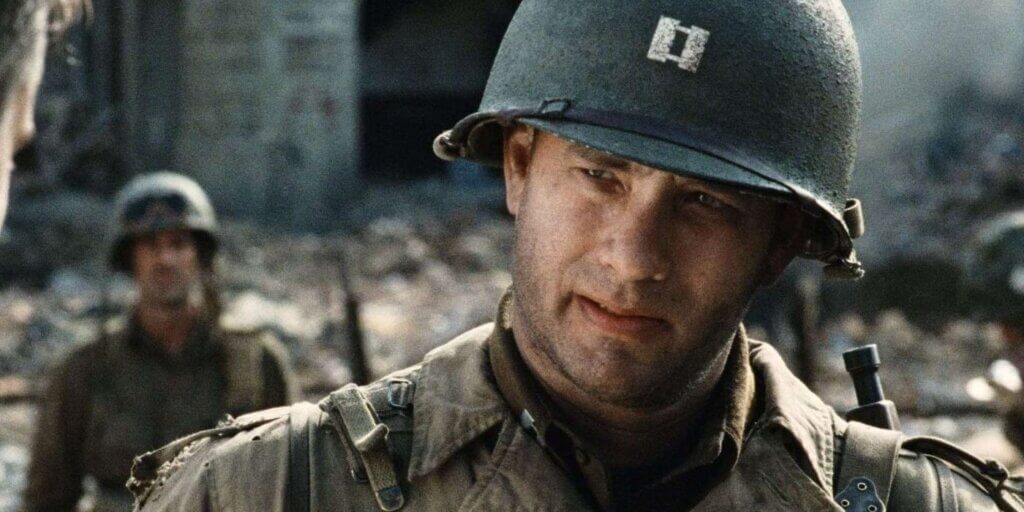
The opening minutes are some of the most harrowing ever put on film—chaotic, brutal, impossible to forget. But what makes Saving Private Ryan endure isn’t just its realism. It’s the way it slows down afterward, turning from spectacle into something smaller, more intimate.
At its core, it’s a story of men bound together not by choice but by circumstance, carrying one another through unthinkable moments. It’s about courage that doesn’t look like heroics so much as survival, loyalty, and sacrifice.
The scale and spectacle of the battles is unforgettable. But the moments I can’t shake are the quiet ones between them—the conversations, the glances, the impossible decisions made with no guarantee of ever making it home.
And maybe that’s why it endures—because in the end, it’s not a film about war, but about what it costs to hold onto your humanity inside it.
Spy Game (2001)
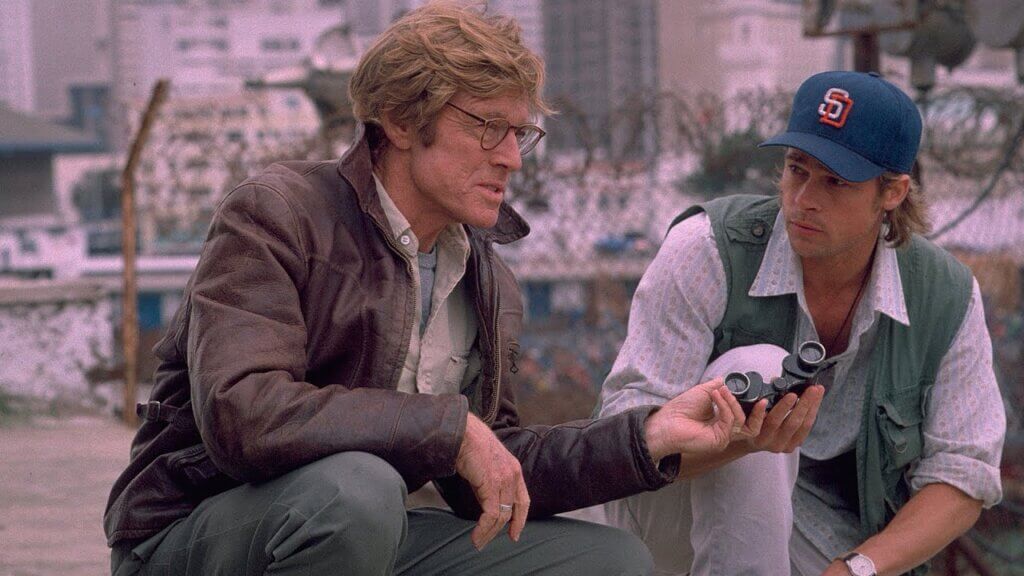
Most spy movies blow things up. Spy Game just lights a match and lets you watch it burn.
It’s a spy thriller, sure. Robert Redford pulling strings from Langley. Brad Pitt dodging bullets in the field. Secrets, betrayals, operations gone sideways. But beneath all that, it’s a story about something quieter, more (dare I say) beautiful: trust, loyalty, the bond between mentor and protégé.
Redford’s half-smile. Pitt’s recklessness. The flashbacks, sharp as a knife. The tension in the last act. It’s all there, perfectly measured.
I’ve lost track of how many times I’ve rewatched it. And every time, I find myself leaning forward—not just to see if the mission will work, but to see if these two men will still believe in each other when the game is done.
And maybe that’s why I keep coming back—because beneath the tradecraft and tension, it’s really a story about loyalty that refuses to burn out.
Stranger than Fiction (2006)
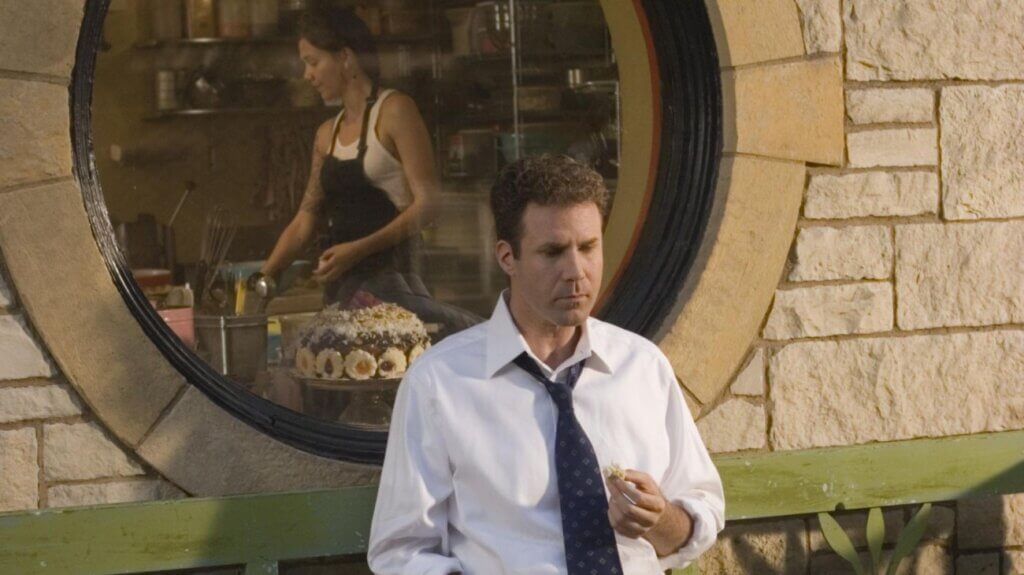
Stranger than Fiction is brilliant, tender, funny, and smarter than it gets credit for. It’s one of those rare films that takes a surreal premise and somehow turns it into something deeply human.
The setup is absurd: an IRS agent (played by Will Ferrell, of all people) starts hearing a narrator describing his every move. It sounds like the kind of high-concept comedy that would lean on gags, but instead it leans on heart. Ferrell plays it straight, which makes the whole thing even funnier—and far more affecting.
What sneaks up on me every time is how much meaning it packs in.
The movie asks what we’d do if we knew our time was limited, but it never feels heavy-handed. It’s funny and weird and oddly beautiful, right up to the last pages being written.
It’s funny, it’s surreal, it’s sweet—but more than anything, it’s proof that sometimes the most extraordinary stories are the ones we’re already living.
The Family Man (2000)
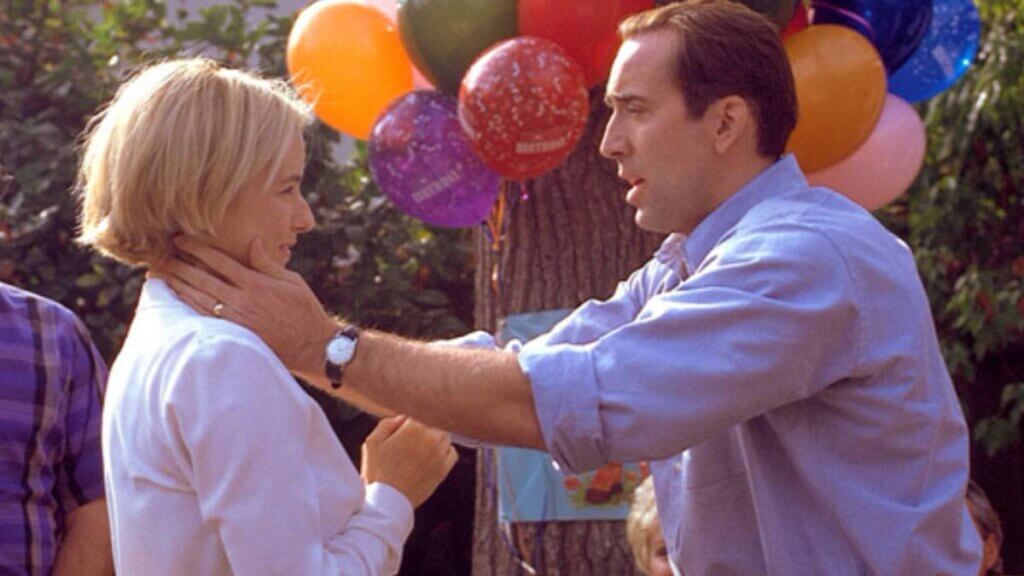
This isn’t the most famous Nicolas Cage movie. It’s not the flashiest or the loudest. But The Family Man has stayed with me in a way few films have.
On paper, it’s a modern-day It’s a Wonderful Life: a man wakes up in a version of his life where he made different choices—trading ambition for love, money for family. But what makes it work is how sincerely it leans into the question we all wrestle with at some point: what actually matters most?
Cage could’ve played it campy… or at least more campy, but instead he gives one of his most grounded performances. Téa Leoni is luminous. And together they make the story feel less like a thought experiment and more like something heartbreakingly possible.
I love this movie because it makes me sit with that tension: the lives we imagine for ourselves versus the ones we actually live. And how sometimes, the ordinary life—the one built on showing up, sharing meals, and weathering storms together—is the one we were chasing all along.
The Natural (1984)
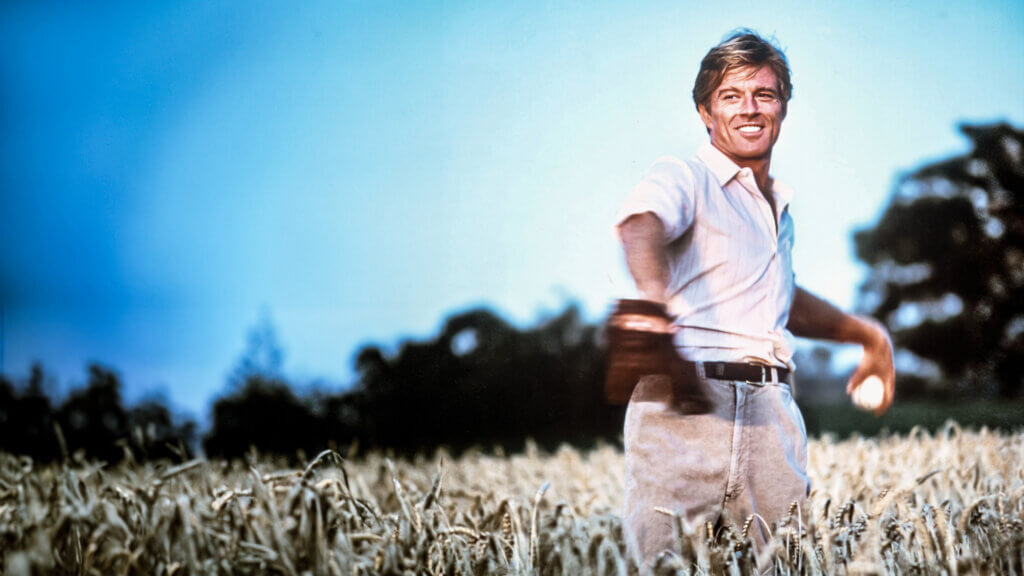
Baseball has been called a lot of things—America’s pastime, a metaphor for life, a slow game punctuated by moments of magic. The Natural leans all the way into that magic.
It’s a sports movie, sure, but it plays like a myth. Robert Redford as Roy Hobbs feels larger than life, yet still achingly human—a man with a gift, chasing both redemption and glory. The story is filled with all the archetypes: the prodigy, the temptations, the fall, the comeback. And somehow, it never feels cliché.
Ahh, but what I love most is the way it looks and feels. The golden light, the crack of the bat, the score swelling as the ball sails into the night.
Pure movie magic.
That final home run, the sparks flying, Roy rounding the bases—it’s impossible not to feel it.
Some stories live forever. And for me, this is one of them.
The Princess Bride (1987)
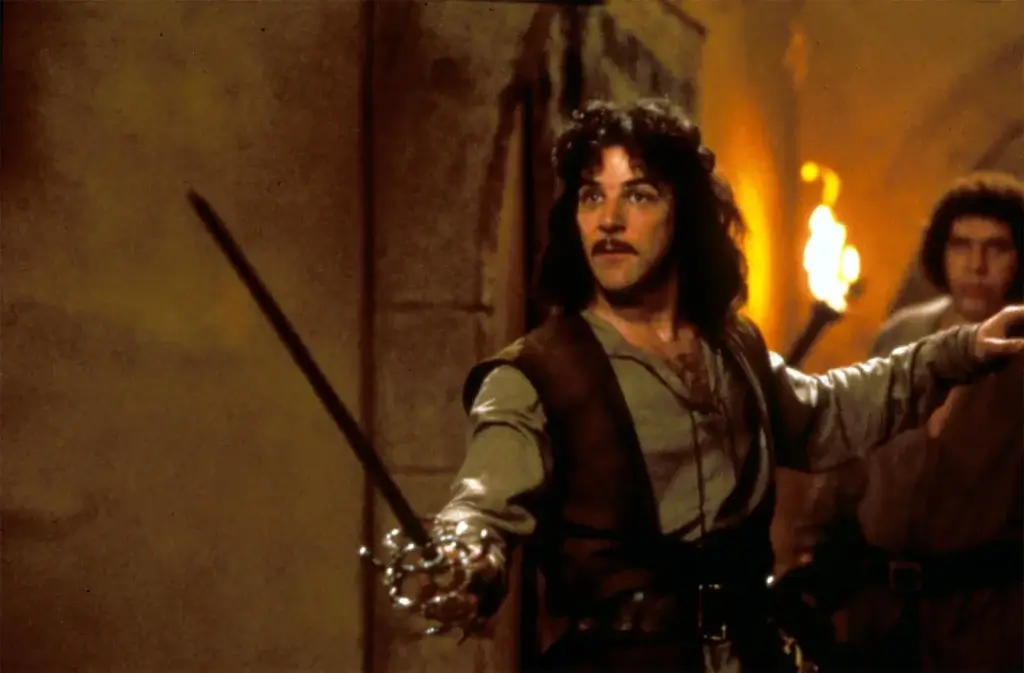
Some movies are quotable. The Princess Bride is practically a second language…
“As you wish.”
“Inconceivable!”
“Hello. My name is Inigo Montoya. You killed my father. Prepare to die.”
…Whole generations can have full conversations with just those lines.
But the magic of The Princess Bride isn’t just in the quotes. It’s how it manages to be everything at once: a fairy tale, a parody, an adventure, a romance, and a comedy. It’s funny without being cynical, sincere without being sappy. It winks at the audience while still pulling you into the story.
I love how the film feels like it knows exactly what it is: a storybook read to a kid who doesn’t think he wants to hear it—until he does. And that’s the trick: we don’t just fall in love with Westley and Buttercup, or cheer for Inigo and Fezzik.
We fall in love with the act of storytelling itself.
And this one? To borrow a word from Vizzini—it’s inconceivable how good it still is.
The Secret Life of Walter Mitty (2013)

Some movies sweep you away with spectacle. Walter Mitty sneaks up on you with wonder.
On the surface, it’s the story of a daydreamer who finally steps into the world. But what makes it linger is how quietly it happens. Walter doesn’t become a different person overnight. He doesn’t shed his awkwardness or suddenly transform into an action hero.
He just keeps choosing.
Choosing to move, to risk, to try. And in those choices, life opens up.
There’s a scene I can never shake: Walter on a mountainside with photographer Sean O’Connell, waiting for the elusive snow leopard. When the animal finally appears, O’Connell doesn’t take the picture.
He just looks.
“Beautiful things don’t ask for attention,” he quietly says.
And in that silence, the whole film clicks into place.
That’s the beauty of Walter Mitty. It isn’t asking us to live louder or bigger. It’s inviting us to notice—to catch the fleeting, fragile moments that don’t trend, but still define us.
And that’s why I love it. Because every time I watch, I remember—the extraordinary isn’t out there somewhere. It’s here, hidden in the ordinary, asking only that I notice.
The Shawshank Redemption (1994)
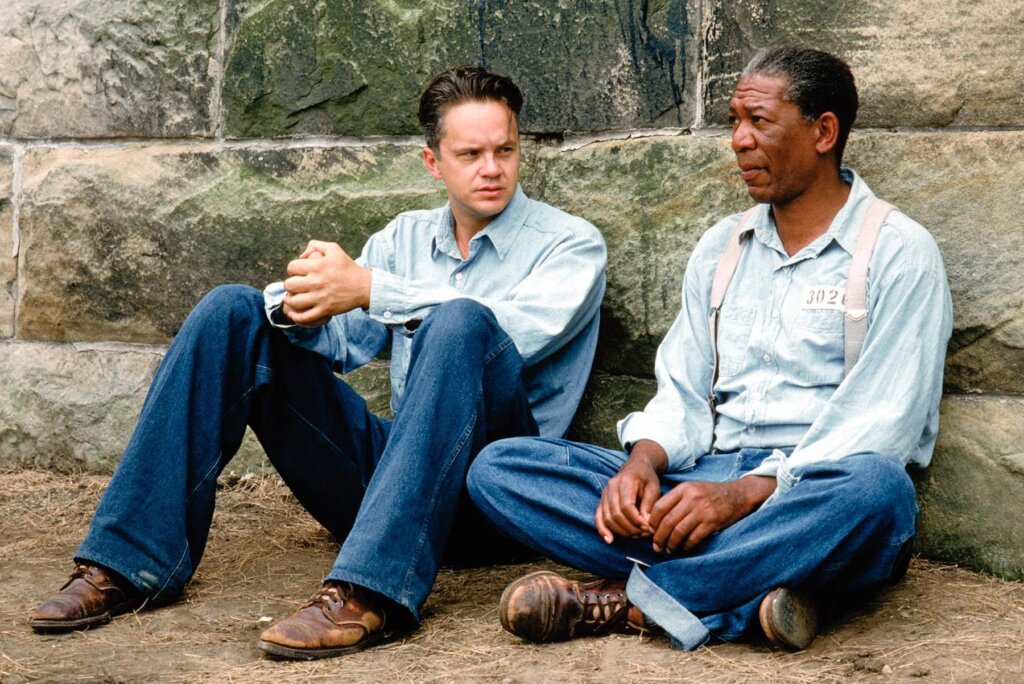
There are movies that lose their magic once you know the ending. The Shawshank Redemption isn’t one of them. In fact, it’s the opposite.
Every time I come back to it, I find something new—some detail in the story, some flicker in a performance, some line that lands a little heavier with age.
At its core, it’s a movie about hope—the kind that refuses to die, even in the darkest places. Morgan Freeman and Tim Robbins give performances that feel timeless, carrying the story with both grit and grace.
I love how patiently the film builds, how it refuses to rush, how it makes you sit in the bleakness long enough for the triumph to feel earned.
And by the time Andy Dufresne stands in the rain, free at last, we see why this movie endures: it’s not just about escape.
It’s about the stubborn belief that even when everything feels lost, redemption is still possible.
The Truman Show (1998)
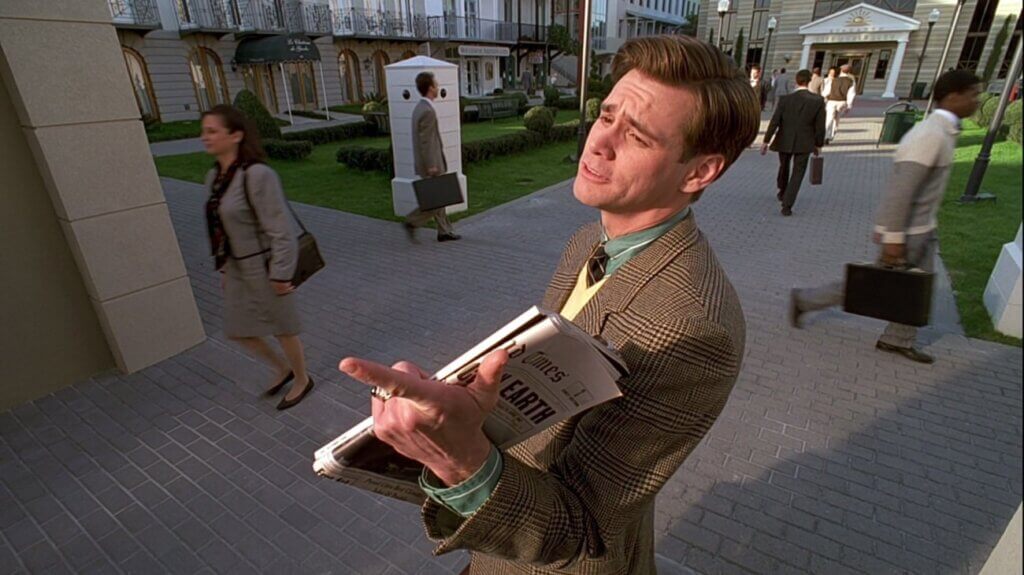
The premise is wild: a man raised inside a television show, unknowingly living every moment of his life on camera. But what could’ve been just a clever satire becomes something much deeper.
Jim Carrey gives one of his best performances—funny, vulnerable, achingly human—and the story unfolds with both spectacle and tenderness.
What’s brilliant is how the absurdity never overshadows the heart. Beneath the satire is something I can’t stop coming back to: that restless pull to step beyond the comfortable, the curated, the expected. Truman isn’t just escaping a TV set—he’s chasing the raw, unscripted edges of a real life.
And that’s what I love most—that it lands on the universal ache: the longing to live fully, to step outside the script, to claim something real.


